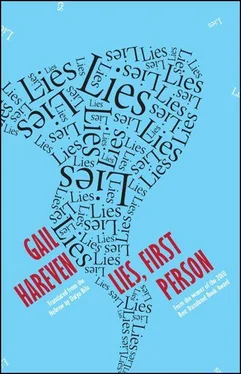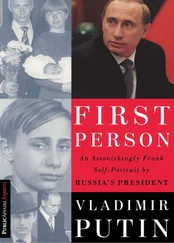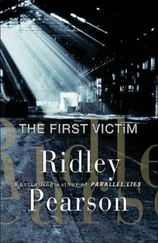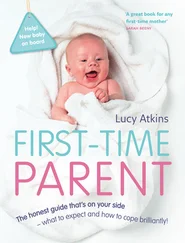Elisheva wasn’t faking, no such doubt entered my mind for a minute, my sister didn’t know how to fake, but what did I know about this American Elisheva? The tone of her American voice didn’t sound as if it was addressed to me, presumably it was addressed to someone, but I had no idea who this person might be.
I was afraid of the past, naturally I was afraid, and I was very afraid of what I would have to tell her. And at the same time, as the emails accumulated, with all the diligent little plans, the historical museum and the nature reserve with the Indian name, with all the details about the hotels and the sales, my responses became increasingly soured by a feeling that was surprisingly similar to insult.
Above the decorative deer tracks my new sister was revealed as an organized woman. She went into detail more than I did. Her writing was orderly. If from time to time she still made spelling mistakes, her computer corrected them all.
Wasn’t this what I wished for? Wasn’t this exactly what I hadn’t even dared wish for?
My new sister didn’t remember my betrayals and the unkindness of my youth when I walked with her in the wilderness. She didn’t resent me for all the times I abandoned her, and she didn’t resent me for my collapse and the relief I obtained in the wake of the collapse.
What else could I hope for?
When I made up my mind to go and see her, as soon as the decision was made, I understood that I would have to prepare myself for different possibilities. But love like this wasn’t one of them.
My collapse at the end of the period of the three-and-a-half-room apartment took me by surprise: like waking up in a hotel room without knowing why you were there or what had happened on the way. Until that afternoon I hadn’t taken a collapse into account, and I had no idea that I was about to collapse.
It wasn’t even an oppressively fine day. Just a rather dull day, neither winter nor summer.
I finished listening to my lectures and went to the administration office to hand in an application for a grant. They told me that the woman whose job it was to deal with the application forms would be back from lunch soon, but she didn’t come back. I remember that her dereliction of duty gave rise in me to an illogical rage, but by the time I stopped in the center of town to buy myself a packet of burekas , the rage had subsided. I had only one beer in an old bar in Rivlin Alley. I intended to take a bus home, but when I was already on my way to the bus stop, I suddenly felt I couldn’t go on and I had to sit down for a minute.
I sat on the doorstep of a watchmaker shop on Ben Yehuda Street, and I went on sitting there, unable to get up. I didn’t feel weak, I wasn’t ill and I didn’t faint, that wasn’t it. I couldn’t even say, “I don’t feel well.” The only thing I know is that my body detached itself from me, as if some thread through which the will transmitted its commands had snapped. At first, I remember, there was even something interesting about it, and I regarded the black sport shoes stuffed with my feet as a curious phenomenon — I thought that if I stopped paying attention to the phenomenon, the disconnection would go away. After a while I did indeed stop paying attention, and in hindsight it seems that I stopped thinking altogether.
Evening fell, I was aware that it was evening, shops closed, the watchmaker locked his door behind him and walked past me. Groups of entertainment seekers crowded the street. Near the square people were playing salsa music, and I went on sitting. Just sitting.
Any Jerusalemite coming to the center of town will always bump into somebody he knows, and at some stage, I have no idea what the time was, a friend from the prehistory of my boarding-school writing club walked down the street, and stopped next to me. She asked if everything was alright, and I answered with a “yes” that sounded alright to me, but she went on standing there anyway. Later on she told me that I didn’t stop crying, and that was strange too, because I didn’t remember any activity from my tear glands.
A friend of my friend happened by, they lifted me to my feet — once I was standing it transpired that I could walk — and together the two of them led me to the apartment of a third, an acquaintance who lived nearby; just a few buildings from there, a stone’s throw, the fourth floor overlooking the street.
I climbed the stairs without difficulty, and when they asked me again what they could do to help me, I was already able to speak, and replied that I needed a phone because I had to get in touch with the municipal emergency services. This was the extent of my collapse. I, the competent, resourceful person who had figured out all on my own how to track down the gynecologist who had performed the abortion on my sister, said that I needed the “municipal emergency services,” because my logic told me there was an emergency here and that it was urgent to contact the authorities in charge of dealing with it. And as I pronounced these words I felt a flicker of satisfaction with myself and with the logic that had started to operate again in spite of the emergency.
They gave me water, a lot of water, and by the time I finished drinking it I already knew that no municipality was going to rid me of my problem or take care of it, and I gave back the glass, thanked them kindly, and said that I had to go now. The three angels who had come to my aid wouldn’t let me go. They went on questioning me until I found the right way to put it and confessed that there was a big problem with my sister; they fearfully inquired what kind of problem, and when I said “a psychological problem” their relief was evident. Not terminal skin cancer, only a mental problem, and there were people with expertise in solving such problems.
We settled in to tackle the matter in a purposeful manner. The name of the last psychologist who had treated my sister was Tamar Cohen, and in the telephone directory we found at least ten women with this name. We called the Talbiyeh mental hospital, and the person who answered the phone was unable to help us. We phoned the Kfar Shaul hospital, and the person who answered the phone there remembered my sister, and helped us get in touch with someone in Talbiyeh who knew how to contact Tamar. All this took some time, and during this time the angels made toasted pita bread and tea with mint.
It was already quite late when I got hold of my sister’s last therapist at her home number. Strengthened with tea, toast, and a sense of practical purpose, I was able to tell her that my sister was deteriorating, that I was alone with her, and that I was lost. And the three angels surrounding me nodded, confirming the correctness of my words and actions.
Until the therapist asked me if I thought there was a danger of suicide, I had no clear idea of what I hoped for from this conversation. Until this moment, the voice in the earpiece was only one of the concerned voices surrounding and supporting me and redirecting me between them. But with this question I was shocked into a hope that up till then had been out of bounds.
And from the moment that the hope struck me, from the moment it penetrated my mind, all thought of any other outcome became too dark to bear.
I didn’t want to lie, but I said: “Our mother killed herself. Apparently she committed suicide. My sister must’ve told you.”
This was the first time I ever spoke this sentence. In public. In the coming, crazy years, I used it to stun and shock until it lost its edge and I turned it into a joke, but the first time it wasn’t addressed to an audience but only to the one person who could save me from the dark.
There were more questions and more answers, and then came the sentence I was dying to hear: “Can you bring her to me? We may have to consider hospitalizing her, for observation, at least.” I explained again that there was no way I could make Elisheva leave the house. And I added: “And I can’t be there all the time. I’m not with her now.”
Читать дальше












